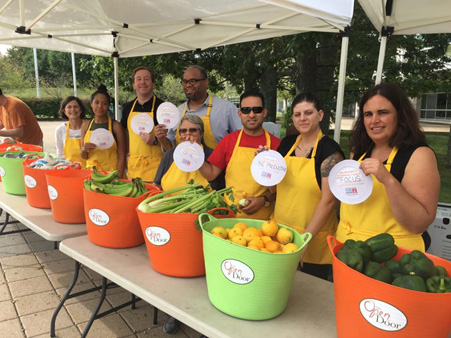November 20
 Nearly 70% of North Shore Community College students are struggling with food and/or
housing insecurity. Specifically, 33% of students surveyed said they sometimes go
without food, and 20% said they do not have permanent homes, higher ratings than seen
nationally.
Nearly 70% of North Shore Community College students are struggling with food and/or
housing insecurity. Specifically, 33% of students surveyed said they sometimes go
without food, and 20% said they do not have permanent homes, higher ratings than seen
nationally.
Hunger and homelessness are rising at more than a third of Massachusetts public colleges and universities. In 2016 North Shore Community College administered a survey on Hunger and Homelessness modeled after the national Hunger/Homelessness Eradication Applied Research Tools (HEART) instrument.
“We were quite shocked and disturbed by these findings and immediately began investigating potential solutions. Students cannot study or achieve academic success if they are hungry or homeless,” said NSCC President Patricia A. Gentile. As a result this fall, in partnership with the Greater Boston Food Bank (GBFB), The Open Door and Beverly Bootstraps, monthly mobile food markets are now being offered on both the Danvers and Lynn campuses.
“The response and results are incredible! We have nearly 400 people signed up to participate and our students are now enjoying about 3,500 pounds of mostly fresh produce and fruit each market,” Gentile added. “In addition we have upped other college programs which offer food vouchers to hungry students and make emergency loans possible. We are committed to doing everything within our power to see our students succeed.”
President Gentile also reached out to Dr. Sara Goldrick-Rab, founder of the Wisconsin Hope Lab which is committed to illuminating the challenge of college food and housing insecurity and finding ways to address it. Dr. Goldrick-Rab is the author of “Paying the Price: College Costs, Financial Aid, and the Betrayal of the American Dream.”
Dr. Goldrick-Rab, Professor of Higher Education Policy and Sociology at Temple University, is bringing her expertise to NSCC Tuesday, November 21 at 5 p.m. when she will be the keynote speaker at a Wharton Club of Boston dinner “Wharton in Action: Higher Education Inequality and Affordability.”
